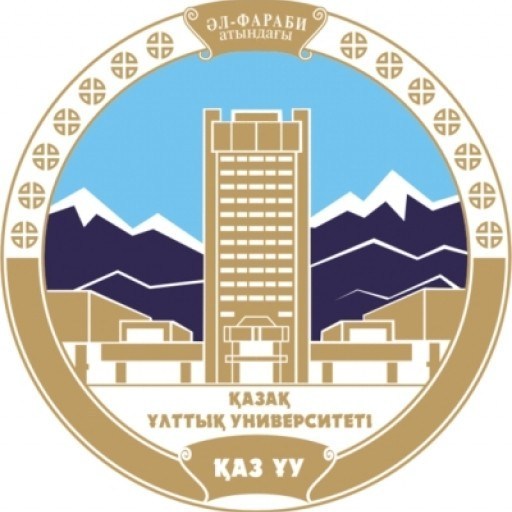Photos of university / #university_of_copenhagen
Assyriology is a fascinating field dedicated to the study of the ancient Mesopotamian civilizations, including the Sumerians, Akkadians, Babylonians, and Assyrians. At the University of Copenhagen, the Assyriology program offers a comprehensive curriculum that combines philological training, archaeological insights, and cultural history, providing students with a deep understanding of one of the world's earliest and most influential civilizations. The program emphasizes mastery of cuneiform script, the primary writing system of the ancient Near East, allowing students to translate and interpret a wide range of historical texts, inscriptions, and documents. Through rigorous language courses, students learn Sumerian and Akkadian, equipping them with the skills necessary to engage directly with primary sources.
Beyond language acquisition, the program explores the history, religion, literature, and societal structures of Mesopotamian civilizations. Students have opportunities to participate in archaeological fieldwork and excavations, gaining practical experience and a firsthand understanding of the material culture. The curriculum is designed to foster critical thinking and analytical skills, enabling graduates to contribute to academic research, museum curation, cultural heritage preservation, and related fields. The university's faculty comprises leading scholars in Assyriology, ensuring students receive high-quality mentoring and exposure to the latest research and methodologies.
The Assyriology program at the University of Copenhagen also encourages interdisciplinary collaboration, linking insights from archaeology, history, linguistics, and anthropology. Graduates are well-equipped to pursue careers in academia, cultural institutions, archives, or continue advanced research through master's and doctoral programs. The program aims to cultivate a deep appreciation for Mesopotamian civilizations' enduring legacy and their influence on subsequent cultures and history. With state-of-the-art resources, a vibrant academic community, and a strong emphasis on linguistic and archaeological skills, the Assyriology program prepares students for a dynamic and impactful career dedicated to understanding the ancient world.
Assyriology at the University of Copenhagen offers a comprehensive and in-depth exploration of the ancient civilizations of Mesopotamia, focusing primarily on the Sumerians, Akkadians, Babylonians, Assyrians, and related cultures. The program provides students with the necessary skills to read and interpret cuneiform script, the earliest known form of writing, which was used across a broad geographic and chronological spectrum. Through a combination of linguistic training, archaeological studies, and cultural analysis, students gain a thorough understanding of the social, political, religious, and economic aspects of these ancient societies.
The curriculum encompasses courses in ancient Near Eastern history, archaeology, and philology, emphasizing both language acquisition and contextual understanding of material culture. Students will learn to translate and analyze primary texts, including royal inscriptions, administrative documents, mythological texts, and literary works, providing insight into the beliefs, governance, and daily life of ancient Near Eastern peoples. Additionally, the program emphasizes the development of practical skills in archaeological fieldwork, artifact analysis, and digital methods for informed interpretation of artifacts and texts.
Beyond linguistic and archaeological expertise, students are encouraged to engage with the broader historical and cultural contexts of the ancient Near East, including its influence on subsequent civilizations and its relevance to contemporary issues. The program aims to foster critical thinking, research skills, and a profound appreciation for the diversity and complexity of ancient Mesopotamian civilizations. Graduates will be equipped for careers in academia, research institutions, museums, and cultural heritage management, or for further postgraduate studies.
The university’s faculty comprises distinguished scholars with extensive fieldwork experience and publications, ensuring students receive a high-quality education grounded in current research. With access to extensive collections, digital libraries, and archaeological sites, students will have opportunities for practical training and research projects. Overall, the Assyriology program at the University of Copenhagen offers a rigorous, stimulating environment for students passionate about unlocking the mysteries of the ancient Near East and contributing to the preservation and understanding of its heritage.
Program requirements for the Master's Degree in Assyriology at the University of Copenhagen include a Bachelor's degree in a related field such as Archaeology, History, Near Eastern Studies, or equivalent qualifications. Applicants are expected to demonstrate proficiency in relevant languages, particularly Akkadian, Sumerian, and other ancient Near Eastern languages, often through documented coursework or examinations. Additionally, candidates must provide a statement of motivation outlining their academic interests and career goals. Prior experience in archaeological fieldwork or philological research is advantageous. The program emphasizes interdisciplinary skills, so knowledge of anthropology, archaeology, and Old Testament studies can strengthen an application. Applicants should submit official transcripts, letters of recommendation, and a CV highlighting relevant academic and research experience. The application process may include an interview or assessment of language skills. The program encourages applicants from diverse backgrounds with a strong interest in ancient Near Eastern civilizations. Financial aid or scholarships may be available for qualified students, subject to application deadlines and specific criteria. The program aims to prepare students for careers in academia, museums, or research institutions by providing comprehensive training in cuneiform studies, ancient script decipherment, and cultural history. Successful completion requires passing coursework in Assyriology, Ancient Near Eastern history, and language proficiency, along with a research thesis. The university maintains high standards for admission to ensure a rigorous educational environment.
The Master’s degree programme in Assyriology at the University of Copenhagen is primarily publicly funded through the Danish higher education system, which offers free tuition to students enrolled in full degree programmes. Danish and EU/EEA students benefit from this system, making the financial barrier to entry significantly lower compared to many other countries. Students do not pay tuition fees for regular studies, which allows a wide range of students to pursue this field of study without the burden of significant tuition costs.
However, students are responsible for their own living expenses, which include accommodation, food, textbooks, study materials, transportation, and personal costs. The University of Copenhagen offers various scholarship opportunities for international students, including government grants, exchange scholarships, and other funding options, though these are often highly competitive. Danish students may have access to student grants and loans through the Danish Agency for Institutions and Educational Grants (SU), which provides financial support based on residence, income, and other criteria.
Funding options may also include external scholarships, such as those offered by the Danish State or international organizations supporting students in humanities fields. Additionally, students may seek part-time employment during their studies, which is common among international students in Denmark, to supplement their income.
The university also provides guidance on funding and financial planning during the application process and throughout the studies. It is advisable for students to investigate specific scholarship opportunities available each academic year, as these can vary and may have eligibility criteria based on nationality, academic performance, or research interests. Overall, while tuition is covered for most students, the main financial responsibility lies in supporting one's living expenses, unless personal funding or scholarships are secured.
Assyriology at the University of Copenhagen offers a comprehensive study of the ancient Near East, focusing on the history, language, and culture of the Assyrian and Babylonian civilizations. The program provides students with in-depth knowledge of Akkadian, the language in which cuneiform tablets were inscribed, along with the archaeological and historical contexts of Mesopotamian societies. Courses cover a broad spectrum of topics, including ancient texts, literature, religion, and political history, enabling students to develop close reading skills of cuneiform inscriptions and understanding of the cultural significance of these ancient civilizations.
The program emphasizes a multidisciplinary approach, combining language studies with archaeological methods and historical analysis. Students have opportunities to engage in excavation projects and internships, fostering practical skills alongside theoretical knowledge. The curriculum is designed to be both challenging and flexible, supporting student research projects and theses that contribute to the understanding of Assyriology. The department encourages international collaboration and offers access to specialized resources, including digital archives and collections of ancient artifacts.
Graduates from the Assyriology program are well-equipped for careers in academia, museums, cultural heritage organizations, and research institutions. The program also supports interdisciplinary studies, allowing students to combine Assyriology with other fields such as history, archaeology, or linguistics. The university’s faculty comprises leading scholars in the field, providing students with mentorship and expert insight into current research trends. Overall, the Assyriology program at the University of Copenhagen aims to preserve and explore the rich cultural heritage of the ancient Near East through rigorous academic training and innovative research initiatives.










